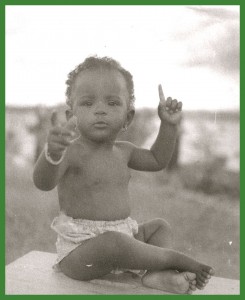
 Last night I came upon an article recently written by professor Darron T. Smith PhD. in The Huffington Post’s Black Voices. It underlines issues I had to deal with, anguished and alone, way into adulthood. It’s titled Can Love Overcome Race in Transracial Adoption? and adresses some salient issues of cultural and racial identity. That was the reason I wrote Split at the Root in the first place: the increasing fascination with exotic adoptions, and my concern that White parents (because they see the world through privileged eyes) would not have the skills to give their exotic children the tools to develop a strong sense of self.
Last night I came upon an article recently written by professor Darron T. Smith PhD. in The Huffington Post’s Black Voices. It underlines issues I had to deal with, anguished and alone, way into adulthood. It’s titled Can Love Overcome Race in Transracial Adoption? and adresses some salient issues of cultural and racial identity. That was the reason I wrote Split at the Root in the first place: the increasing fascination with exotic adoptions, and my concern that White parents (because they see the world through privileged eyes) would not have the skills to give their exotic children the tools to develop a strong sense of self.
I felt deeply and sincerely loved as a child, and still can’t see too many parents as devoted as mine were. But my ignorance of my own culture and racial history brought me much insecurity primarily because I didn’t know how I fit in the world.
I was in my late thirties when I became consciously aware that something in my subconscious was tripping me up. I confided in a Lebanese friend in California that I thought I had a problem with my identity. My friend laughed, not in a mean way, and said she knew it since she had met me. Reason she understood my trip-ups was because her parents had migrated to the US from Lebanon, and as a child she resented their speaking with an accent. So much so, that when her father picked her up from school she would not sit next to him on the bus. Selma taught me several things about White American society. Most importantly that I’d have to stay on top of my son’s school work because the teachers in the middle class White schools he would be attending, would not necessarily challenge him. We’d have the impression he was doing well, when in reality he might not be learning anything at all. What a shock to hear that… Schools not supporting dark children so they fail as adults. I don’t have to say how “on top” of my son’s teachers I ended up being.
It was in a Black professor’s class that I learned the African American perspective on American slavery and the Reconstruction period. And I fully agree with Professor Smith when he says that White Americans who have Black children need to learn about the painful racial history of Black people in the United States. “In that process, (learning about Black history) a white parent has to come to grips with racism and his/her place in a white racialized society… only then can a parent begin to provide their child with the tools to have a strong racial identity.”
My German parents, as I imagine all parents do, prepared me to live in their society. When I say that my Black mother would have had the answers to issues of race as they pertained to me, had my German mother trusted her enough to ask her, she would have probably received some real tools “that Black parents tend to pass down as received wisdoms through mere experience.” But my birth mother, whom we knew, was never asked to share her knowledge.
Professor Smith’s perspective comes from an educated African American experience and sees well-intentioned Whites considering racism as over, and that their love is enough to support the emotional wellbeing of their child. Do White parents understand that their dark children will not, for the foreseeable future, share their social privileges? Remember how early in his career, Tiger Woods who did not (and probably still does not) want to be seen as a Black man, had to concede that he was in fact one when Taxi drivers in Manhattan would not stop when he hailed them.
Black adopted children know they are dark, of course. But, given their environment, they can’t help thinking like a White person. One of the tools to navigate their world with confidence, is knowing their history.
In what other ways would you suggest White parents could support a strong sense of self in their exotic child?
MAR

Well, a great deal is starting to make sense of my childhood…
Regardless of it all, you were/are an outstanding Mother!
I figure it might! I am only a good mother because you are a splendid son!